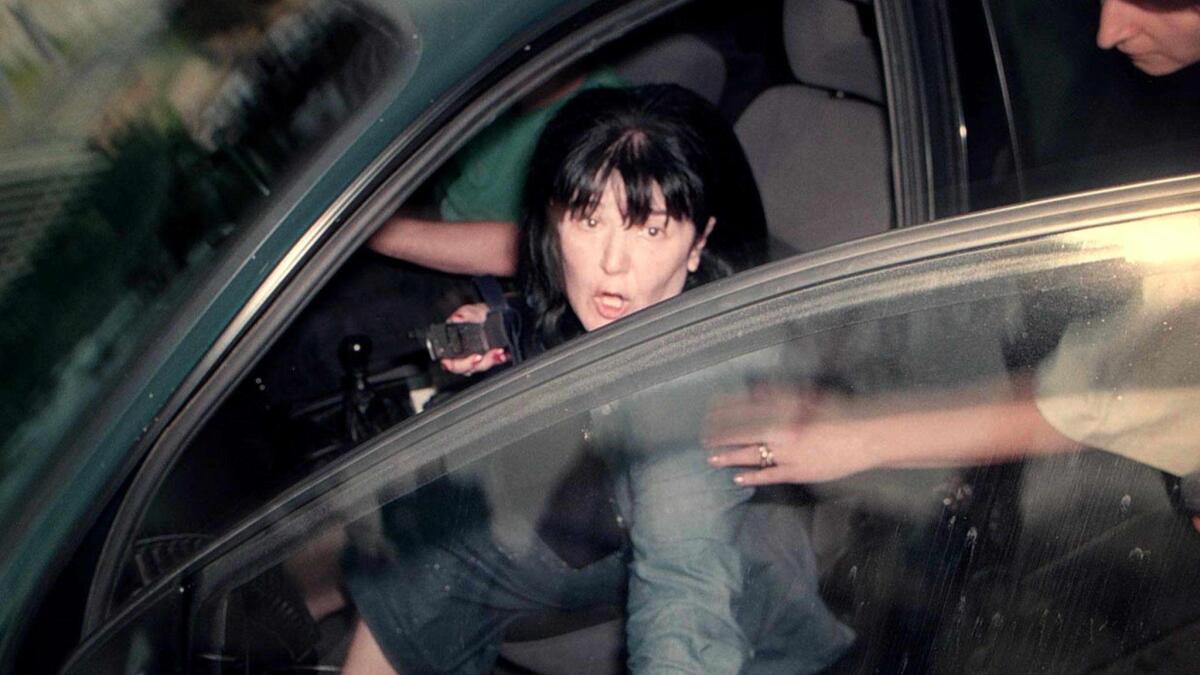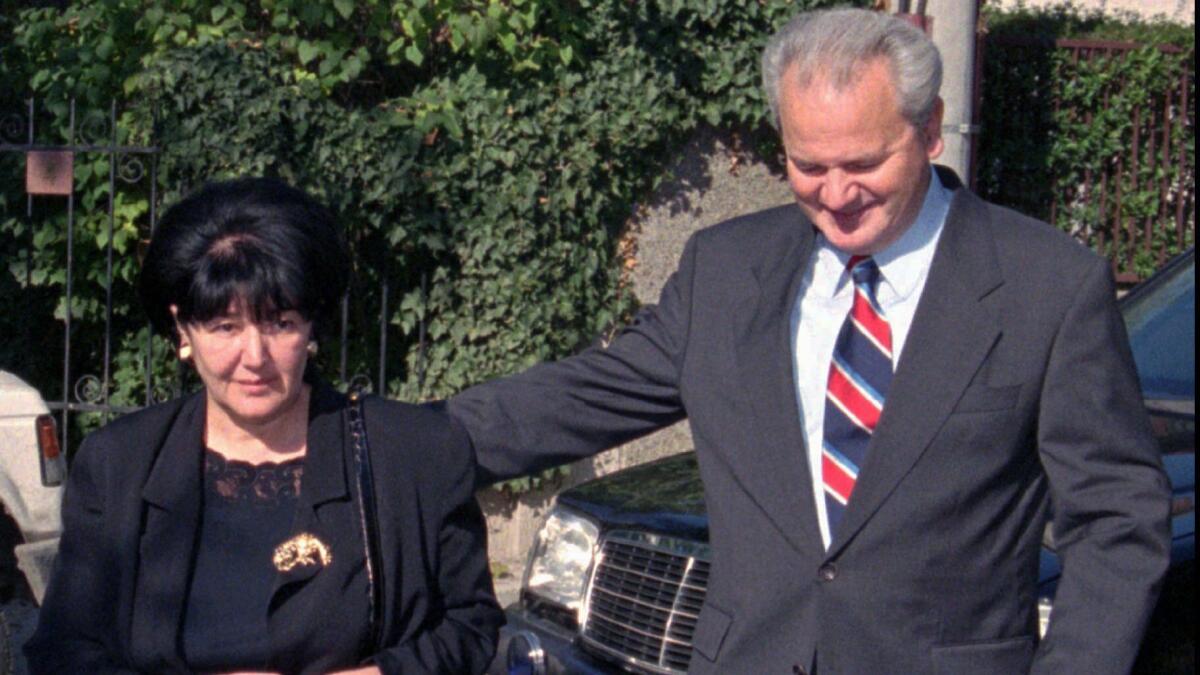Mirjana Markovic, the ‘Lady Macbeth’ of war-torn Serbia, dies at 76

- Share via
Reporting from Belgrade, Serbia — The widow of late Serbian strongman Slobodan Milosevic, who was often dubbed Lady Macbeth of the Balkans because of the huge influence she had on her husband, died Sunday in Russia, where she had fled to avoid prosecution. She was 76.
Serbian state television said Mirjana Markovic died in a hospital in Moscow. Milosevic’s Socialist party sent condolences to the family, saying it “respected her as the wife of Slobodan Milosevic and as a scientist.”
There were no official details about the cause of death from Russia, where she had lived since 2003, but Serbian media said Markovic died of pneumonia and had undergone several recent surgeries.
Markovic, who had been a sociology professor at Belgrade University, served as leader of a neo-Communist party during her husband’s presidency in the 1990s, a coalition partner with a major influence on Milosevic.
Markovic, whose trademark was a plastic flower she often wore in her hair, was known for “diaries” she published in local newspapers that were widely read because they often predicted future political moves by her husband.

The former Serbian first lady’s notes were written in a poetic, flowery style that contrasted with her often ruthless behavior toward her husband’s political opponents.
She fled Serbia in 2003 after Milosevic’s ouster from power in a popular revolt. He was handed over to a U.N. court in The Hague, Netherlands, where he faced a genocide trial for his role in the Balkan wars of the 1990s. He died in 2006 while jailed there before a verdict.
After the political revolt that ended her husband’s time as president, Markovic was sought for questioning in the killings of the couple’s political opponents during his autocratic rule. In 2005, Serbian authorities asked for her extradition, but Moscow refused, saying she had been granted political asylum.
Though she was never formally charged, Markovic was widely suspected of playing a role in the 1999 assassination of prominent Belgrade newspaper editor Slavko Curuvija, who was gunned down during the NATO bombing of Serbia. Markovic had publicly accused him of supporting the Western military alliance’s attacks by “calling for NATO bombs.”
A Serbian court recently convicted four former state security members of killing Curuvija, but the court did not reveal who ordered the hit on the editor.
Pro-democracy officials who took over after Milosevic’s ouster also linked Markovic to the disappearance in 2000 of Milosevic’s former mentor and friend, Ivan Stambolic, whose remains were found in a pit in northern Serbia in 2003.
Markovic fled Serbia with her son, Marko, who reportedly made a fortune in murky business dealings and smuggling operations while his father was president and Serbia was placed under international isolation for launching land-grabbing wars in neighboring countries after the breakup of the former Yugoslavia.
In Moscow, Markovic wrote an autobiography defending her husband and revealing details of their marriage.
She described Milosevic as “the leading political figure” of the last decade of the 20th century, “whose name was mentioned more often than those of the Russian, American and Chinese presidents put together.”
After his death in jail in The Hague, Milosevic was buried in the yard of his wife’s family home in the central Serbian town of Pozarevac. Markovic was in Moscow and did not attend, fearing her arrest.
Markovic is survived by her son and a daughter, Marija.
More to Read
Start your day right
Sign up for Essential California for the L.A. Times biggest news, features and recommendations in your inbox six days a week.
You may occasionally receive promotional content from the Los Angeles Times.





